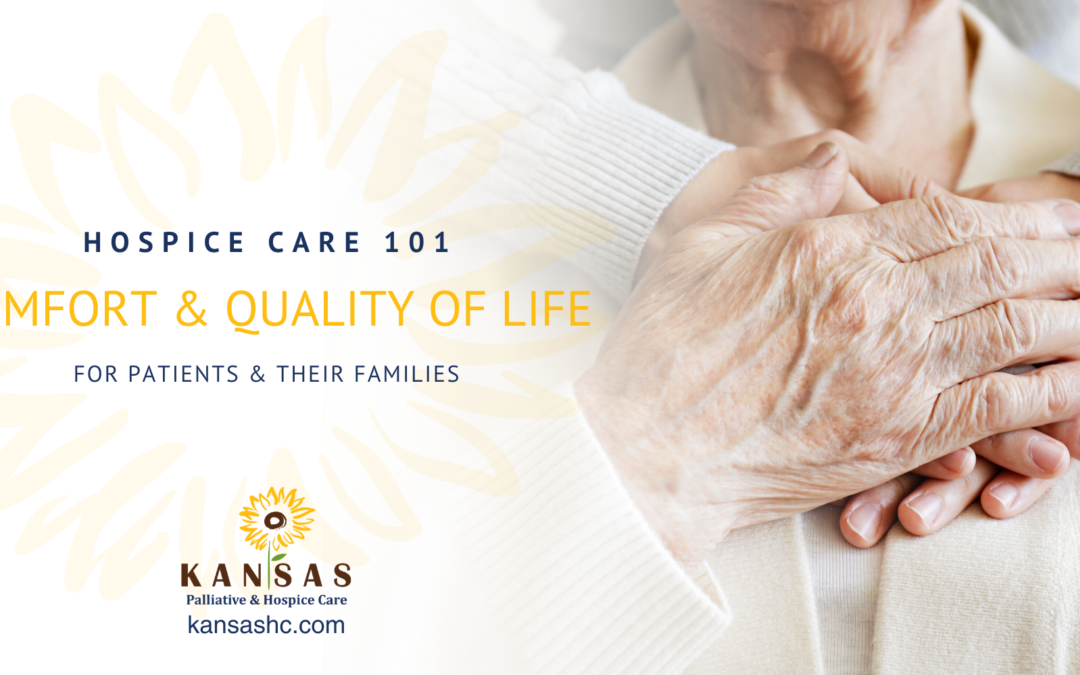At the core of hospice care lies a deep commitment to providing comfort and enhancing the quality of life for patients and their families during their end-of-life journey. It is an approach that prioritizes compassion, dignity, and tailored support, allowing individuals to find solace and peace amid difficult times. Let’s explore the essential aspects of hospice care and its positive impact on patients and their loved ones.
Emphasizing Comfort and Support
Hospice care is designed to address patients’ physical, emotional, and spiritual needs. By providing pain and symptom management, medical equipment and supplies, and expert guidance, hospice teams strive to ensure that patients experience as little distress as possible. The ultimate goal is to improve the overall quality of life, allowing individuals to focus on what truly matters to them during their remaining time.
According to a study published in the Journal of Pain and Symptom Management, hospice care significantly reduces the intensity and prevalence of physical symptoms such as pain, nausea, and shortness of breath. By having a specialized team of caregivers, including nurses, doctors, social workers, and spiritual counselors, hospice care is able to provide comprehensive support and alleviate the burden of managing symptoms from patients and their families.
Emotional and Spiritual Well-being
Hospice care recognizes the importance of emotional and spiritual well-being alongside physical comfort. Trained professionals offer counseling and emotional support to patients and their loved ones, helping them navigate the complex emotions that often accompany end-of-life journeys. Hospice care empowers families to find strength and connection during a challenging time by providing a compassionate space for open communication and empathy.
Multiple studies, such as the one conducted by the Journal of Hospice and Palliative Care, have highlighted the positive impact of emotional and spiritual support in hospice care. Its findings show that patients and families receiving emotional and spiritual care have higher satisfaction levels and experience greater peace and acceptance throughout the end-of-life process.
Importance of Education and Caregiver Support
As families navigate the intricacies of hospice care, education, and caregiver support play a pivotal role. Hospice teams provide families with knowledge about medication management, caregiving techniques, and emotional coping strategies. By equipping families with the tools they need, hospice care aims to reduce stress and enhance the well-being of both patients and caregivers alike.
An article published in the National Institute on Aging highlights the crucial role of education and caregiver support in hospice care. It emphasizes that comprehensive education significantly improves caregiver confidence and reduces the burden associated with caregiving responsibilities.
Celebrating Each Moment
Hospice care encourages patients and families to cherish the time they have together and make the most of each moment. Whether through music therapy, pet therapy, or simply creating opportunities for meaningful connections, hospice care embraces life and focuses on what brings joy and comfort to those in its care.
Studies, such as the one conducted by BMC Palliative Care, have shown the positive impact of supportive interventions like music therapy on patients’ well-being. These interventions have been found to decrease anxiety, improve mood, and enhance overall quality of life.
Embracing a Compassionate Journey
Hospice care is a compassionate journey that provides comfort, support, and enhanced quality of life for patients and their families. It is not about giving up hope but instead shifting focus towards finding solace, peace, and joy in the remaining time together with the help of hospice care.
As a hospice provider, we are committed to being there for families every step of the way, ensuring that their loved ones receive the care and support they deserve. If you or your loved one needs hospice care, please don’t hesitate to reach out. Together, we can navigate this journey and make it as comfortable and meaningful as possible.
Need help? Contact us at (913) 353-6525.


